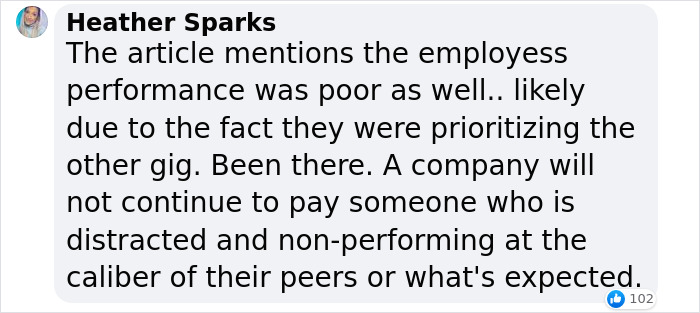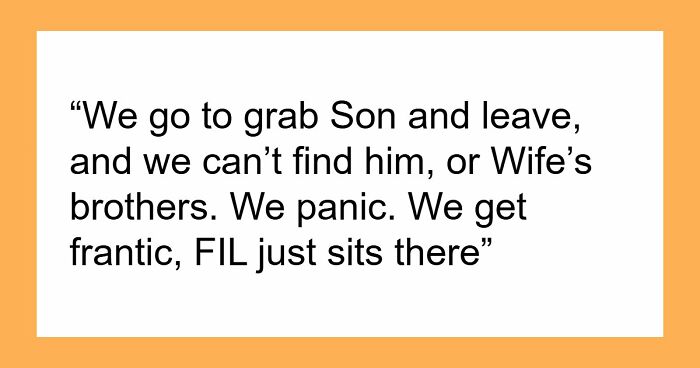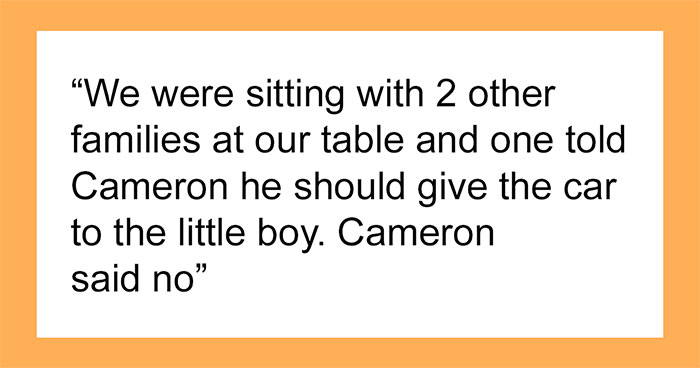The co-founder and chief commercial officer of a remote recruitment company decided to fire an employee after software installed on his computer revealed he had been working two jobs at once.
Patrick Synge runs Metrickal, a business headquartered in Barcelona, Spain, that has ten full-time employees who work remotely.
Synge said one of his workers, who was hired in 2022, began failing to meet his deadlines, leading the employer to receive complaints from dissatisfied clients.
- Patrick Synge, co-founder of Metrickal, fired an employee for working two jobs simultaneously after using tracking software.
- The worker, based in Peru, started missing deadlines and refusing shifts, raising suspicions about his dual employment.
- DeskTime software revealed the employee spent nearly half of his work time on tasks for a second company.
He then grew suspicious that his employee, based in Peru, was working two jobs simultaneously when the employee began refusing certain shifts he would normally have accepted.
Patrick Synge, the co-founder of the remote recruitment company Metrickal, fired an employee after learning that the employee had been working two jobs simultaneously

Image credits: Patrick Synge
“I had a feeling that he was doing something on the side, but because there was no proof, I didn’t want to jump to any conclusions,” the CCO toldBusiness Insider.
Synge had a meeting with the employee in question to inform him that if he continued with his poor performance, he would have to fire him.
“While he showed some signs of improvement, his overall performance didn’t change much. This put a significant burden on the rest of the team, who had to cover his shifts and deal with missed deadlines,” he described.
In December 2023, the co-founder of the company wanted to test a four-day workweek, so he asked his team to install DeskTime. The app tracked data on the users’ computers, letting Synge understand “how [his] employees spend their time and what could be optimized to boost productivity.”
DeskTime is an employee monitoring software that lets employers “look at not just how long [their] team members were working but also what exactly they were doing,” according to itswebsite.
When Synge analyzed the data from the Peruvian worker’s computer, his suspicions were confirmed.
Synge said the worker in question began failing to meet his deadlines, leading the employer to receive complaints from dissatisfied clients
Image credits: Patrick Synge
He discovered that the employee had been using software during the workday that was unrelated to his position at Metrickal.
He also found the name of an American business on the platform.
Instead of focusing on his tasks at Metrickal, the employee had been spending close to half of his work time working for the second company, Synge said.
“It seems that he forgot about the tracking software since once it’s downloaded, it doesn’t require any manual switching on and off.
“I would have probably fired him anyway, but the tracked data was the missing hard proof.”
Image credits: Patrick Synge
While Synge clarified that he doesn’t oppose workers having “side hustles,” he believes that these extra jobs shouldn’t interfere with the productivity of their full-time position.
If employees fail to manage all the different tasks simultaneously, the “overemployment trend” becomes problematic.
“Their attention will be scattered, so the quality of their work will suffer. As an entrepreneur, I have to think about my business and clients first. I can’t afford to lose clients because someone wants to make extra money,” he argued.
“I can’t afford to lose clients because someone wants to make extra money,” the CCO argued
Image credits: Pexels/Tranmautritam
In addition to potentially causing the company to lose clients, working two jobs could create extra burdens for the individual’s colleagues.
“I don’t think it’s fair to the rest of the team who have to cover up for someone else’s low performance. This is why keeping this employee of mine in the company wasn’t an option. He wasn’t fair and respectful to the team, and that’s something I can’t tolerate.”
However, others find that working two remote jobs is a valid alternative that people should consider when their salary expectations are not met at their current company.
Image credits: Pexels/Eunjin Baek
“Working two remote, full-time jobs is a pretty cool option that we have,” said YouTuber and product designer Jake Ferrin. “We’re taking advantage of the time that we live in, and this is a unique opportunity that our generation gets to explore.
“You’re taking your destiny into your own hands. A lot of time, at a corporate job, getting a raise is completely out of your control, so this is a great way to make quick money.”
Among the biggest challenges that Jake faced while working two remote jobs were overlapping meetings, not having enough time to devote to his side projects, and missing out on team activities with his co-workers.
YouTuber and product designer Jake Ferrin weighed the pros and cons of working two remote, full-time jobs
There’s even an entire subreddit devoted to this practice called “overemployed,” which currently has 330,000 members. On the forum, workers seek advice on how to avoid being caught and share tips on juggling their multiple professional responsibilities.
“Went from 3Js to 4Js. I’ve done 5Js in the past, but it’s not sustainable for me. 4Js is challenging enough to keep me interested. Base salary is a bit over 600K,” reads one of the comments.
Working multiple jobs simultaneously may not be illegal under US federal or state laws, but it could violate employment contracts and result in termination if a worker is ever found out.
According to data from theBureau of Labor Statistics, roughly 416,000 Americans are working two full-time jobs at the same time.
Synge’s decision sparked a debate on the practice of “overemployment”
Poll Question
Thanks! Check out the results:
Explore more of these tags
Firing an employee who is regularly underperforming, relative to their pay, is OK, whether that employee is working at another job or not. Conversely, firing an employee who is NOT underperforming relative to their pay is NOT OK, whether they are working at another job or not. The employer has no say about what an employee does off the clock, whether it's work at another job, climb mountains, and vegetate in front of a computer.
The whole point was, surely, that he was working both jobs at the same time. Not 'off the clock'.
Load More Replies...My SO works two jobs with two different companies simultaneously, but has two different computers and keeps everything separate. And also works from home.
I remember when only the unemployed were poor. Good times. Now people have 3 jobs only to get by.
Firing an employee who is regularly underperforming, relative to their pay, is OK, whether that employee is working at another job or not. Conversely, firing an employee who is NOT underperforming relative to their pay is NOT OK, whether they are working at another job or not. The employer has no say about what an employee does off the clock, whether it's work at another job, climb mountains, and vegetate in front of a computer.
The whole point was, surely, that he was working both jobs at the same time. Not 'off the clock'.
Load More Replies...My SO works two jobs with two different companies simultaneously, but has two different computers and keeps everything separate. And also works from home.
I remember when only the unemployed were poor. Good times. Now people have 3 jobs only to get by.

 Dark Mode
Dark Mode 

 No fees, cancel anytime
No fees, cancel anytime 




























































23
15